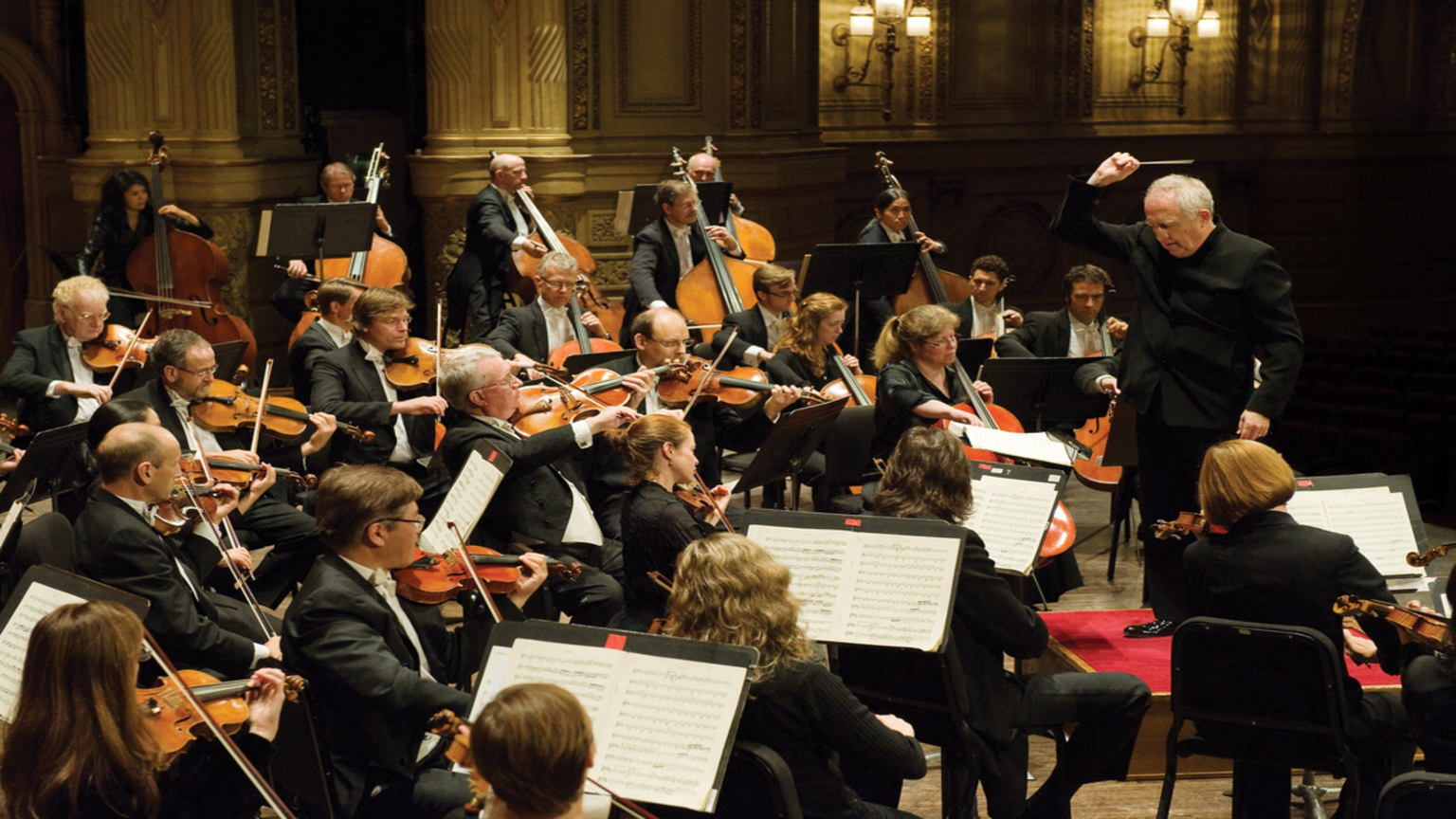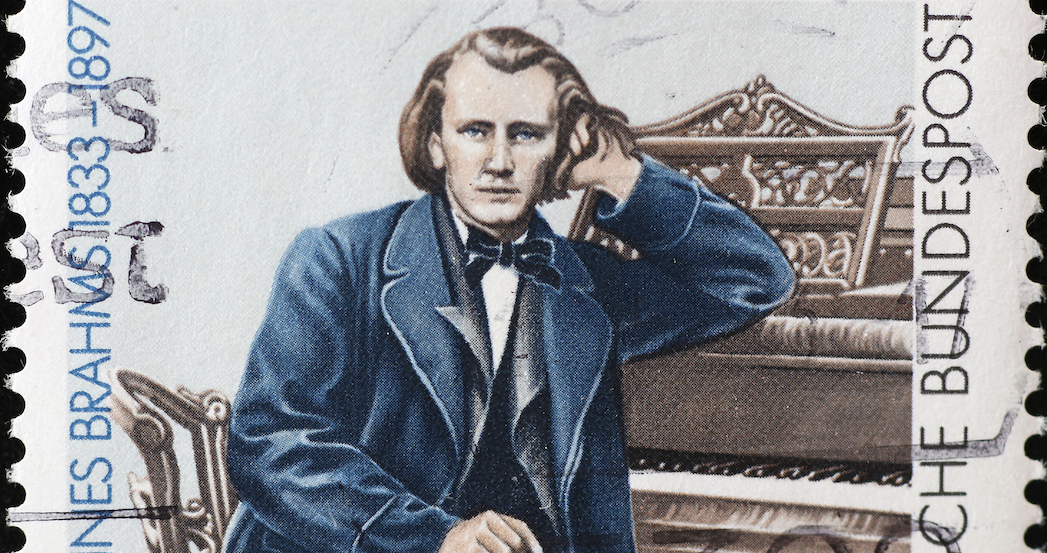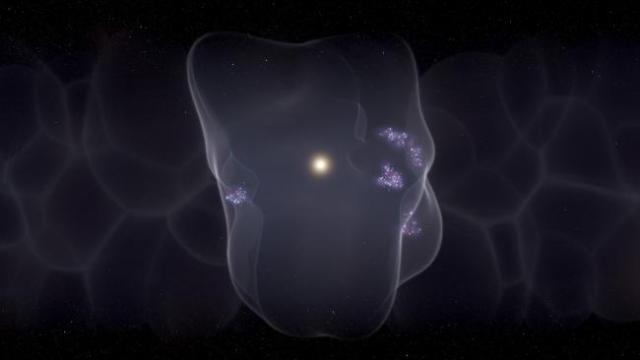10 of the greatest classical composers alive today

- Contemporary classical music is all about experimenting with form and sound to create new compositions.
- Here follows a list of 10 of the most celebrated contemporary classical composers alive right now.
- Unlike classical music, contemporary classical music spans across the globe: from Iceland to South Korea.
Contemporary classical music, as its name suggests, refers to classical music that is written close to the present day. The seeds for this movement were planted during the early 20th century, a time when many composers felt that the conventions of the so-called Common Practice Era — which lasted from 1600 to around 1910 — had run their course.
The creative possibilities of one form exhausted, composers went in search of another. Without uniform guidance, each arrived at a different destination. After the First World War, the highly influential Austrian-American musician Arnold Schoenberg came up with serialism: a technique that organizes non-tonal music into rows of 12 notes that repeat in varying patterns.
From serialism came spectral music, which is informed by an almost scientific study of the properties of sounds. Loosely inspired by Claude Debussy and Edgard Varèse, spectral music is written with the help of technology: computer algorithms generate parts of the composition, which are edited by digital programs and played using synthesized sound alongside traditional instruments.
Like any modern art movement, contemporary classical music embraces rather than shuns experimentation. In John Cage’s infamous three-movement composition 4’33’’ (1952), the performers sit in silence for 4 minutes and 33 seconds. The “music” is whatever sounds that naturally occur in the environment, from screeching chairs to coughing audience members.
Not all contemporary composers have moved in this direction, though. For every musician seeking to push the conceptual envelope, another uses electronic sounds and other technology innovations simply to build upon or comment on the work of those long-dead composers whose names and melodies continue to come to mind when we use the term “classical.”
At the same time, many contemporary composers spend their careers struggling to escape the shadows of Bach and Beethoven. To that end, Big Think has made a list of the 10 most noteworthy musicians alive today. The results were aggregated from sources like The Guardian, BBC Music Magazine and Baltimore Symphony Orchestra, which based its own ranking on the number of performances.
Kaija Saariaho
Kaija Saariaho is a Finish composer. She was born in 1952 in Helsinki and began her musical education at the Sibelius Academy, followed by the Hochschule für Musik Freiburg in Baden-Württemberg. Here she studied under composers Brian Ferneyhough and Klaus Huber, whose insistence on serialism and using mathematical concepts pushed her toward spectralism.
Saariaho is one of the most accomplished composers of our time. She is particularly well known for her operas. A recent one, Innocence, follows people coming to terms with the trauma of surviving a school shooting. “The journey into Saariaho’s music,” exclaims Tom Service, “is to be confronted with the darkest and most dazzling dimensions of your subconscious.”
Thomas Adès
Thomas Adès was born in London in 1971. Adès, who is of Syrian-Jewish origin, studied at King’s College, Cambridge before serving as the Britten Professor of Composition at the Royal Academy of Music. He is best known for composing the opera The Tempest, based on the play of the same name by William Shakespeare, as well as Powder her Face, which depicts sexual acts through music.
“Adès gives the listener a lot to digest,” Rex Levang wrote in 1999, when Adès’ career had already skyrocketed. “He’s a great includer. Not that he writes musical collages, but Adès never gives the impression that he shuns an idea because it’s unusual, avoids writing musical lines because they’re difficult, or writes a one-track piece if he would rather develop it with contrasts and episodes.”
Arvo Pärt
Arvo Pärt was born in Paide, Estonia in 1935. The story goes that he was driven toward experimentation by circumstance rather than curiosity, playing with the top and bottom notes of the family piano after the middle register had been damaged. After serving in the military, where he played in the army band, Pärt enrolled at the Tallinn Conservatory where he proceeded to perfect his craft.
After a brief but unrewarding dance with serialism, Pärt withdrew from the music world to study medieval music. Pärt, according to Hermann Cohen, “makes a quiet, wordless protest against the compulsion to be modern, against a planned and prescribed progress into the relentlessly new in the light of ‘unchangeable truths’ of faith.”
Jennifer Higdon
Jennifer Higdon was born in 1962 in Brooklyn but grew up in Atlanta before moving to Seymour, Tennessee. During this period, she was exposed not to classical music but to rock and folk. After joining her high school percussion band, she went on to study flute performance at Bowling Green State University but struggled to keep up due to a lack of formal training in her youth.
Today, Higdon is one of the most accomplished composers in the United States. She won three Grammy Awards for Best Contemporary Composition, and even received the Pulitzer Prize for Music for her Violin Concerto. “After decades in which writing orchestral music to please was frowned upon,” wrote the Financial Times, “along comes [Jennifer Higdon].”
Steve Reich
Steve Reich was also born in New York, on Broadway of all streets. The 85-year-old composer played an important role in the development of minimalism during the 1960s. In defiance of the Western tradition, Reich’s music makes use of repetitive figures, slow harmonic rhythms and canons to reveal rather than disguise his own compositional processes.
Equal parts theorist and musician, Reich has written extensively about his methods. “I am interested in perceptible processes,” he says in his 1968 essay, Music as a Gradual Process. “I want to be able to hear the process happening throughout the sounding music (…) Focusing in on the musical process makes possible that shift of attention away from he and she and you and me outwards towards it.”
Unsuk Chin
Unsuk Chin was born in 1961 in Seoul. She taught herself to play the piano at a young age. After studying composition at Seoul National University, she attended the Hochschule für Musik und Theater Hamburg, where she worked alongside the late contemporary composer György Ligeti. Her music is popular in Korea as well as western countries, and has been performed by orchestras around the world.
Chin’s music has a non-national quality to it. Her influences include composers like Béla Bartók and Igor Stravinsky as well as electronic music, which is not indebted to a specific cultural heritage. Her vocal music is based on experimental poetry and classic texts. “Chin isn’t the kind of composer to lay bare her innermost anguish or ecstasy,” wrote The Times. “Her music is pure sonic drama; it expresses only itself.”
Hildur Guðnadóttir
Hildur Guðnadóttir was born in 1982 in Reykjavík. She is the youngest composer on this list. Chances are you have heard her music before. She composed the soundtracks for films like The Revenant and Joker. In 2019, she provided the score for the HBO miniseries Chernobyl, about the Soviet power plant disaster, which garnered her an Emmy, a Grammy, and a BAFTA.
Guðnadóttir was raised in a musical family: Her father was a clarinet player and composer, while her mother was an opera singer. “There is an uncommon tenderness to even the most unsettling moments of her score, a kind of wounded grace,” Pitchfork wrote of the soundtrack for Joker, which made Guðnadóttir the first woman in history to win an Oscar for Best Original Score.
Missy Mazzoli
Missy Mazzoli was born in Pennsylvania in 1980. She studied at Boston University, Yale School of Music, and the Royal Conservatory of the Hague. In addition to her studies, she was a composer-in-residence at the Opera Philadelphia as well as the Chicago Symphony Orchestra. Mazzoli now teaches musical composition at Mannes College of Music.
“Missy Mazzoli,” John Lewis mentioned in a review of her performances for The Guardian from 2020, “has said that her ideal listener would know nothing about her or her music before hearing it, removing any preconceived ideas based on genre. In many ways, seeing her work performed live is also something of a distraction.”
Mason Bates
Mason Bates was born in 1977 in Richmond, Virginia. He is not only a composer of contemporary classical music, but also a DJ of electronic dance music. Many know him for writing the music for the opera (R)evolution of Steve Jobs as well as the Gus van Sant film Sea of Trees. Bates was a composer-in-residence of the Kennedy Center for the Performing Arts among other institutions.
Bates tries to combine symphonic and electronic music, and has compared his compositions to the narrative symphonies of the late 19th century. His work “explores a rich nexus where organic sounds blur into digital ones,” Pitchfork wrote of his album, Stereo is King, which could easily apply to his orchestral work as well. The composer is “fascinated by sounds, and it doesn’t matter where they come from.”
Anna Clyne
Anna Clyne was born in 1980. She was raised in London but now lives and works in the United States. A child prodigy, she wrote her first composition when she was 11. Clyne began her music education at the University of Edinburgh, followed by the Manhattan School of Music. She also worked as the director of the New York Youth Symphony’s training program for promising musicians.
Cleveland Classical described her latest album Mythologies as a “convergence of tradition and invention, sometimes set against each other to provide a fascinating contrast, other times wrapped up into one enchanting package – familiar sound and fresh sensibility (…) Mythologies makes clear that [Clyne] is an essential voice in the field today, and a supremely enjoyable one at that.”




